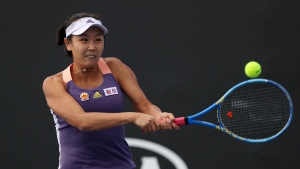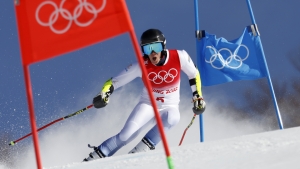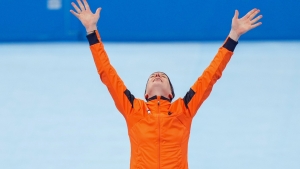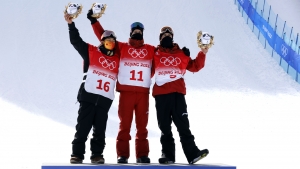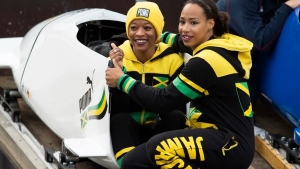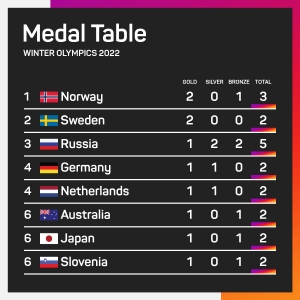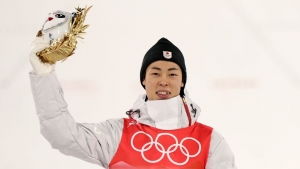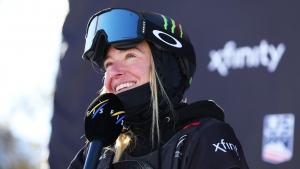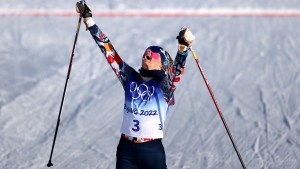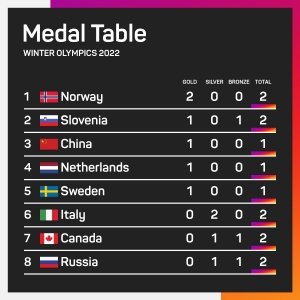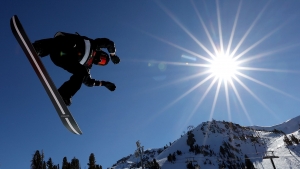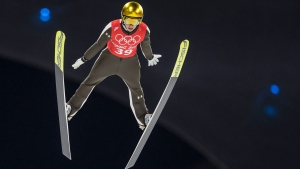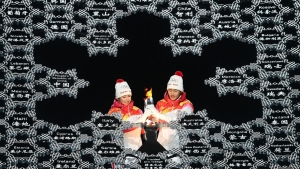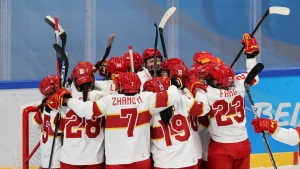The 24th Winter Olympics was declared open in Beijing after a spectacular ceremony packed with familiar schmaltz and well-meaning speeches, climaxing in an unexpected and controversial twist.
Thomas Bach, president of the International Olympic Committee, in his welcoming speech, told the Olympians: "You the Olympic athletes – you will show how the world would look like, if we all respect the same rules and each other.
"There will be no discrimination for any reason whatsoever. In our fragile world, where division, conflict and mistrust are on the rise, we show the world: yes, it is possible to be fierce rivals, while at the same time living peacefully and respectfully together.
"This is the mission of the Olympic Games: bringing us together in peaceful competition. Always building bridges, never erecting walls. Uniting humankind in all our diversity."
Bach added: "In this Olympic spirit of peace, I appeal to all political authorities across the globe: observe your commitment to this Olympic truce. Give peace a chance."
The concept of the Olympic truce dates back almost 3,000 years and calls for peace during the Games period.
At a time when there are concerns over a possible Russian invasion of Ukraine, it is particularly relevant.
Chinese Uyghur athlete Dinigeer Yilamujiang, a 20-year-old cross country skier, was chosen to light the Olympic cauldron alongside Nordic combined competitor Zhao Jiawen.
These Games are also taking place against a backdrop not only of a pandemic but of concerns over China's human rights record, notably with allegations of crimes against humanity being committed against the Uyghur population in the region of Xinjiang.
This has been described by the United States as a genocide against the Muslim ethnic minority, with Amnesty accusing China of "systematic state-organised mass imprisonment, torture and persecution".
Yilamujiang, who in 2019 became China's first cross country skiing medallist in an International Ski Federation event, joined Zhao in placing the Olympic torch at the heart of a giant snowflake.
The choice was swiftly condemned as a stunt by campaign group Human Rights Watch, whose China director Sophie Richardson wrote on Twitter: "The @Olympics cauldron was just lit by one person whose #Uyghur community #China govt seeks to destroy.
"You are a disgrace, @Beijing2022, and there is not a hell hot enough for whoever thought this up."
The cauldron lighting followed Xi Jinping, president of China, formally declaring the Games open.
Doubtless there will be much to enjoy about competition during the Games, but this has been a rocky build-up.
Away from the Uyghur situation, concerns also persist about the safety and wellbeing of Chinese tennis star Peng Shuai, after her accusations, since withdrawn, of sexual assault against a prominent former politician.
This was a ceremony that had been boycotted, officially by some and semi-officially in other cases, by several of the world's political leaders, with the United States, the United Kingdom, Canada and Australia among those who did not send such representatives to watch the spectacle.
Russian leader Vladimir Putin was in Beijing to meet with President Xi ahead of the ceremony, however, and was also on the guest list for the big show itself.
Friday night's ceremony was held at the Bird's Nest stadium, which also hosted the opening of the 2008 summer Olympics, with the show's artistic direction coming from film-maker Zhang Yimou.
Cross country skier Wang Qiang and halfpipe snowboarder Liu Jiayu were the athletes chosen to deliver the Olympic oath, while snowflakes dominated the show.
A version of John Lennon's Imagine, an inevitable staple of such ceremonies, rang out, and the show was a technological feast of treats, with its centre stage made up of 11,600 square metres of HD LED screen.
Competitors from Ukraine came in dancing and waving, while away from the politics there were flag-bearers with stories to tell, such as Jamaican bobsleigher Jazmine Fenlator-Victorian.
Jamaican bobsleighing is destined to be forever intertwined with the 1993 Hollywood hit comedy movie Cool Runnings, but for Fenlator-Victorian there was a sense of solemnity about this occasion.
"I have a lot of emotions," she said. "My sister recently passed away a few weeks ago.
"I wasn't sure I would even be able to walk in today, so to be standing here without getting too emotional is more than words can say. To have my team-mates backing me up and choosing me as one of the representatives to hold the flag is priceless.
"Back home we are all hustlers, we grind, some people still don't have running water. Different things happen, so instead of dwelling on those negativities we just try and uplift each other and keep the vibes up."
Keeping the vibes up might be as good as any motto for these troubled Olympics.























